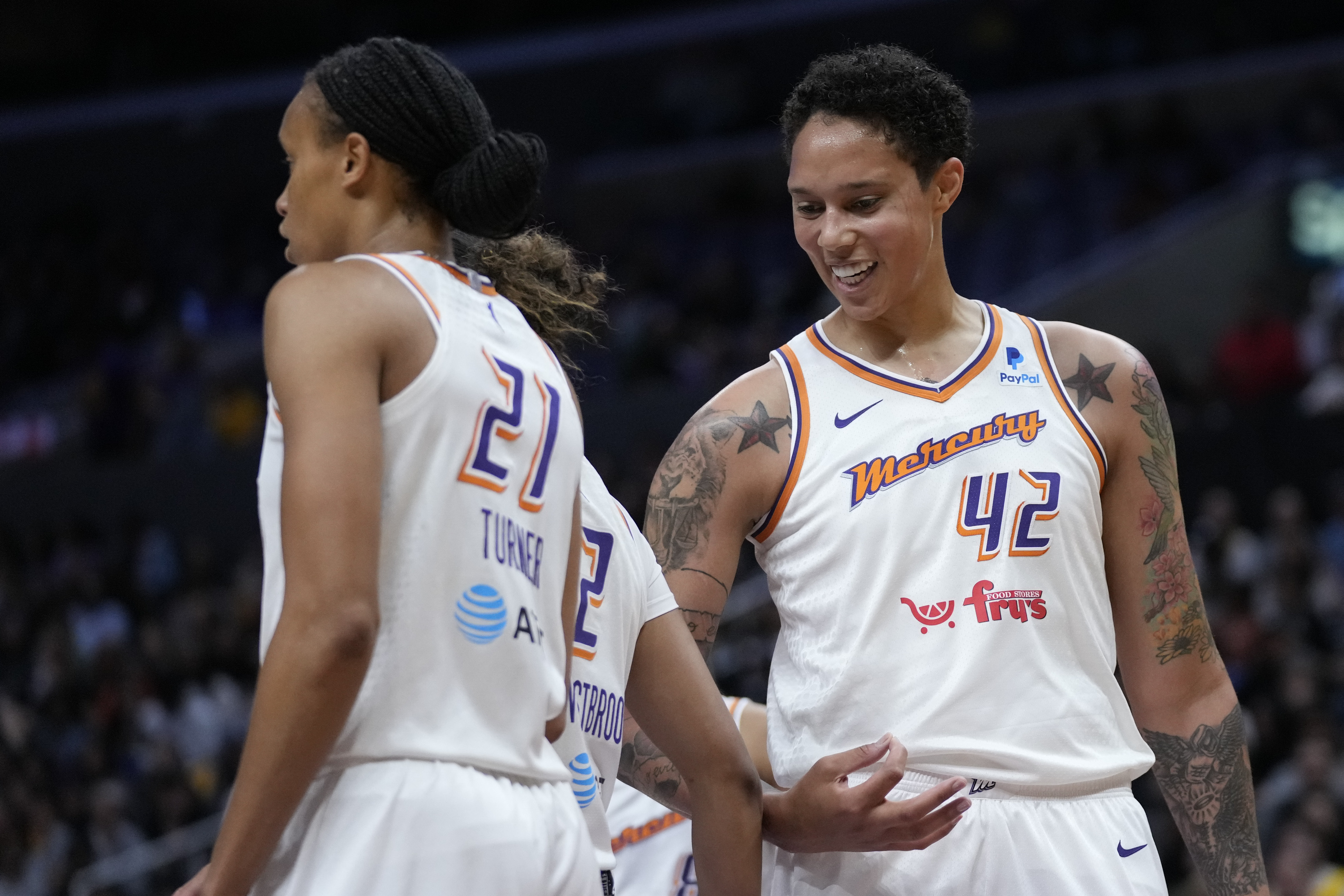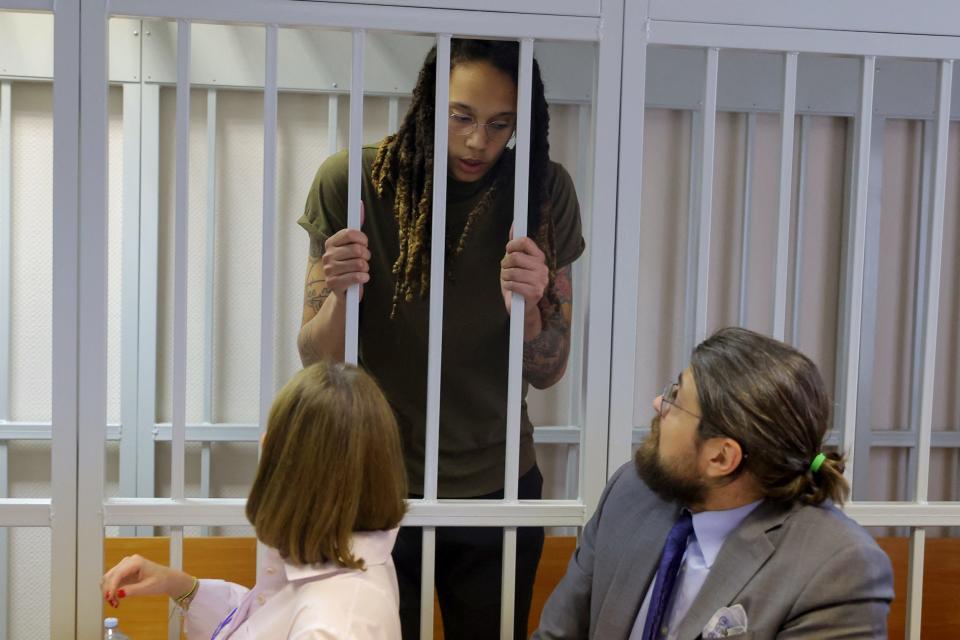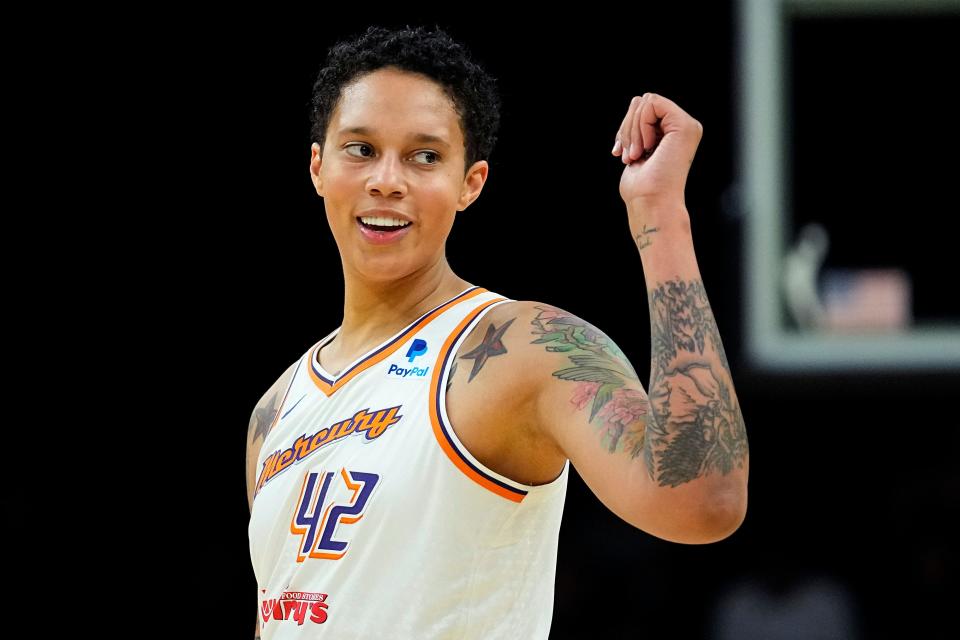Brittney Griner’s journey to her current role as a transformative force in the WNBA is nothing short of remarkable. After a grueling ten-month detainment in Russia, Griner’s return to the U.S. was a moment of national celebration, but her next steps were largely uncertain. Many wondered if she would step back from the spotlight or if she would return to the court with her trademark intensity. Today, Griner’s presence is doing more than answering those questions; she is reshaping the WNBA, proving that her comeback is about more than just basketball. It’s a testament to resilience and a new wave of advocacy that’s redefining the league.
The initial uncertainty surrounding Griner’s return stemmed from the emotional and psychological impact of her detainment. Throughout those ten long months, Griner faced hardship that few could imagine. The mental strain of an international crisis, coupled with prolonged isolation, made her eventual return to basketball a powerful symbol of perseverance. Though many athletes might struggle to regain their form after such a traumatic experience, Griner defied the odds, showing up for the Phoenix Mercury’s training camp in top form, ready to compete again. Her comeback wasn’t just a return to the court; it was a statement that she was not giving up her passion or her power to inspire.
Griner’s return has revitalized interest in the WNBA. Her story has drawn attention from fans, media, and advocacy groups alike, putting a fresh spotlight on the league and its unique role in sports. The WNBA has always prided itself on being a space where athletes can champion social justice, inclusion, and equality, and Griner’s journey has only strengthened that mission. Her resilience under pressure has become a rallying cry for fans who see her as more than just an athlete. For the WNBA, having Griner back is not only a boost to viewership but also an opportunity to deepen its message and broaden its reach. She embodies the struggles and triumphs that resonate with so many, creating a powerful narrative that has drawn new audiences to the league.

Beyond the fans and media attention, Griner has become a central figure in the WNBA’s efforts to improve players’ rights and conditions. Her detainment in Russia brought renewed scrutiny to the economic realities many WNBA players face, particularly the issue of pay disparity that often drives players overseas during the offseason. Griner herself was in Russia because of the significantly higher salaries offered in international leagues. The dangers of this arrangement are now clearer than ever, and the WNBA, with Griner’s support, is taking steps to address these concerns. Discussions on closing the wage gap and providing more financial support within the league have gained traction, with Griner as a prominent advocate for change. By raising her voice, she is pushing the league to prioritize player safety, well-being, and fair compensation.
Moreover, Griner has also used her platform to shine a light on LGBTQ+ rights and mental health issues, topics that are deeply personal to her. As one of the most high-profile openly LGBTQ+ athletes, Griner has always been a trailblazer in promoting acceptance and equality. Her recent experiences have only strengthened her commitment to advocacy, and she now speaks out more openly than ever. Griner’s powerful stance encourages the WNBA to further support LGBTQ+ causes and broaden its reach to more inclusive spaces. In doing so, she’s encouraging young fans and athletes to embrace their identities fearlessly, making the WNBA a haven for diversity and acceptance.
On the court, Griner’s impact is just as impressive. Her presence as a dominant center has always been a challenge for opponents, and her return only solidifies her place among the elite in the league. She’s averaging impressive stats, and her skill and athleticism are instrumental in pushing her team forward. Her gameplay reflects a refined focus and determination, as though every point scored is a reminder of her journey. Teammates and fans alike notice the fire in her eyes, a visible testament to her perseverance. Griner’s dedication has not only enhanced her performance but has also set a standard for her teammates, showing them that strength and commitment can carry one through even the most daunting challenges.

Griner’s influence extends into the community as well. Her involvement in local outreach programs, mentorship initiatives, and advocacy groups is inspiring others to give back. Her story has encouraged fans to connect with causes they care about, especially those related to justice and equality. Griner’s message emphasizes that athletes have a responsibility that goes beyond their performance on the court; they are role models, capable of inspiring action and change. Through her efforts, Griner is reminding everyone that a single voice, empowered and unafraid, can echo through generations.
As Griner continues her journey, she’s setting an example for her fellow athletes and fans alike. Her experiences have shown the world that strength lies in vulnerability, and that enduring hardships can fuel profound transformation. In her comeback, Brittney Griner has become a symbol of resilience, a beacon for equality, and a powerful force for positive change. The WNBA, with Griner’s continued involvement, is evolving beyond just a league for women’s basketball. It’s becoming a platform where athletes can inspire action, challenge societal norms, and create a legacy that reaches far beyond the court.
In redefining what it means to be a WNBA player, Brittney Griner is not only reshaping the league but also inspiring athletes worldwide to see their platform as a tool for change. Her comeback story is one of hope and courage, one that will inspire fans, athletes, and advocates for years to come. In the face of unimaginable adversity, Griner has returned with purpose and conviction, forever altering the landscape of the WNBA and leaving an indelible mark on the world of sports.








